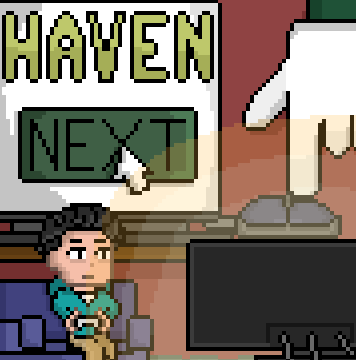University sexual assault education programs merely covering bases

Billy Galant | The Daily Illini
Sep 18, 2016
I know we all remember attending the mandatory FYCARE class freshman year to learn about sexual consent and sexual assault.
FYCARE conversations — and others on the topic of sexual assault — are what made this class so valuable to me and the other boys and girls that sat with me in IKE room 2003.
Now, the FYCARE workshop is no longer the only requirement that the University has for students regarding sexual assault education. The new online Haven training module has been in place since this fall and is supposed to be completed prior to the start of classes. However, this may be the first time you have heard of this online class, and you wouldn’t be alone.
“Oh wait, I think I got an email about that; I mean I haven’t really looked at it,” said Sneha Ramprasad, a senior in LAS. “I transferred here and I did FYCARE, but I didn’t know about this.”
Beyond the few emails students received about Haven, no other advertising has been done; the new online module has been receiving flack for its lack of depth and for its close resemblances to the FYCARE training sessions.
Get The Daily Illini in your inbox!
Haven may seem similar to the in-person FYCARE sessions, but this makes sense because the course was designed so that you are reminded of what you learned in FYCARE every semester for the rest of your time on campus.
This new requirement is reasonable and could be a positive thing for students. This is a good way to reinforce concepts over the course of the four or more years you’re at the University, versus the old system of bringing it up in your first weeks here and then never addressing it again.
However, students argued that this could have been done in a different way.
“I just don’t think it’s the answer to sexual assault; I really don’t. I feel like people can just click through this. FYCARE was actually good because it was a conversation in person,” said Hannah Downing, a junior in LAS. “I’m glad the University is trying to do something, but let’s try other things ‘cause this won’t work.”
The government actually federally mandated that students be reminded, very often, of their initial training. The University’s Ethics page reads, “The University’s Prohibition of Sex Discrimination, Sexual Harassment, and Sexual Misconduct policy requires all incoming, returning, and transfer students, as well as all faculty and staff, to be regularly educated on discrimination and harassment prevention, sexual violence, and reporting options and obligations.”
It’s possible that the reason we have an online module to take after FYCARE is because of the shortage of resources available on campus to round up everyone, including faculty and staff, to take an in-person class every semester.
But most University students, when asked about Haven, replied that it was in no way meaningful or even engaging.
“Oh yeah, I was drunk when I took that online,” said one student who wished to remain anonymous.
Other students I talked to said they’d even heard of students emailing Haven to falsely say they were “triggered” by the module and could not take it just to get out of the program.
As a sophomore, who is so busy that she barely even has time to shower, I understand why this module is a nuisance. I hardly learned anything from Haven, and the lessons were all weirdly redundant. For example, one question had both four-fifths and 80 percent as potential answers, yet only one was correct.
Students should have constant reminders of what we learned at FYCARE, but this isn’t a good way to achieve that. Students say it isn’t working, and the University should not just dismiss that and continue to use it in the future.
Haven may be a very easy alternative to an in-person conversation that’s difficult to accomplish on such a big campus, but that’s not enough of an excuse for me. If anything, this module is more offensive to me than doing nothing at all.
Even if our campus cannot come up with a way to make a meaningful lesson, we shouldn’t use a module that makes sexual assault training seem like an unimportant practice.
Leah is a sophomore in Media.





